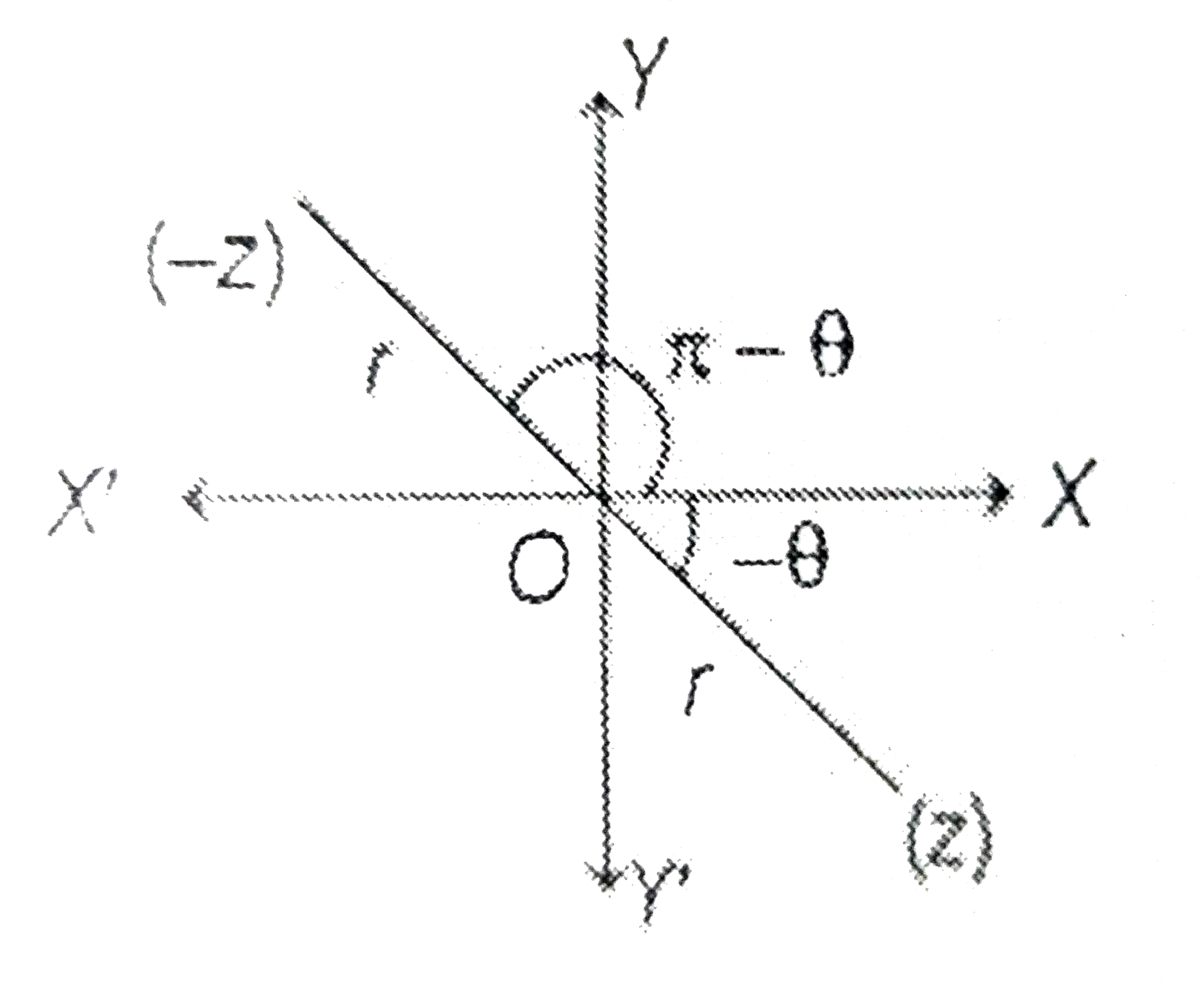If arg(z)<0 then arg(−z)−arg(z)= (1) π (2) −π (3) −π2 (4) π2
A
π
B
−π
C
−π/2
D
π/2
Video Solution
Text Solution
The correct Answer is:A
Since arg (z) <0⇒arg(z)=−θ

⇒z=rcos(−θ)
=r(cosθ−Isinθ)
−z=−r[cos(π−θ)+Isin(π−θ)]
∴arg(−z)=π−θ
Thus ,arg (-z)-arg (z)
=π−θ−(−θ)=π
Alternate Solution
Reason arg (-z)-arg (−zz)=arg(−1)=π
|
Topper's Solved these Questions
- COMPLEX NUMBERSBOOK - IIT JEE PREVIOUS YEARCHAPTER - COMPLEX NUMBERSEXERCISE - TOPIC 3 ARGUMENT OF A COMPLEX NUMBER (OBJECTIVE QUESTIONS II)(ONE OR MORE THAN ONE CORRECT OPTION)
2 Videos
- COMPLEX NUMBERSBOOK - IIT JEE PREVIOUS YEARCHAPTER - COMPLEX NUMBERSEXERCISE - TOPIC 3 ARGUMENT OF A COMPLEX NUMBER (OBJECTIVE QUESTIONS II)(MATCH THE COLUMNS )
1 Videos
- COMPLEX NUMBERSBOOK - IIT JEE PREVIOUS YEARCHAPTER - COMPLEX NUMBERSEXERCISE - TOPIC 2 CONJUGATE AND MODULUS OF A COMPLEX NUMBER (INTERGER ANSWER TYPE QUESTION )
1 Videos
- CIRCLEBOOK - IIT JEE PREVIOUS YEARCHAPTER - CIRCLEEXERCISE - Topic 5 Integer Answer type Question
1 Videos
- DEFINITE INTEGRATIONBOOK - IIT JEE PREVIOUS YEARCHAPTER - DEFINITE INTEGRATIONEXERCISE - LIMITS AS THE SUM
6 Videos
Similar Questions
Knowledge Check
If |z|=1 and z≠±1, then one of the possible value of arg(z)−arg(z+1)−arg(z−1) , is
A−π/6Bπ/3C−π/2Dπ/4Suppose arg(z)=−5π/13, then arg(z+¯z1+z¯z) is
A−5π/13B5π/13CπD0Let z=a+ib+(a,b) be any complex number, ∀a,b,∈Randi=√−1. If (a,b)≠(0,0), then are(z)=tan−1(ba), where arg (z)≤π
If arg(z)>0, then arg(−z)−arg(z)=λ1and if arg (z) <0, then arg (z)- arg (−z)=λ2, whereAλ1+λ2=0Bλ2−λ2=0C3λ1−2λ2=0D2λ1−3λ2=0
If |z−25i|≤15. then |maximum arg(z)−minimum arg(z)| equals
View SolutionFill in the blanks.
arg(z)+arg¯z where ,(¯z≠0) is …..
View SolutionIf |z−25i|≤15 , then find
(i) Maximum |z| (2) Maximum arg (z)
(3) minimum |z| (4) Minimum arg (z)
View SolutionIf z =a + ib satisfies arg (z-1) =arg (z+3i) , then (a−1):b=
View SolutionIf |z−1|=1, then arg (z) is equal to
View Solution
